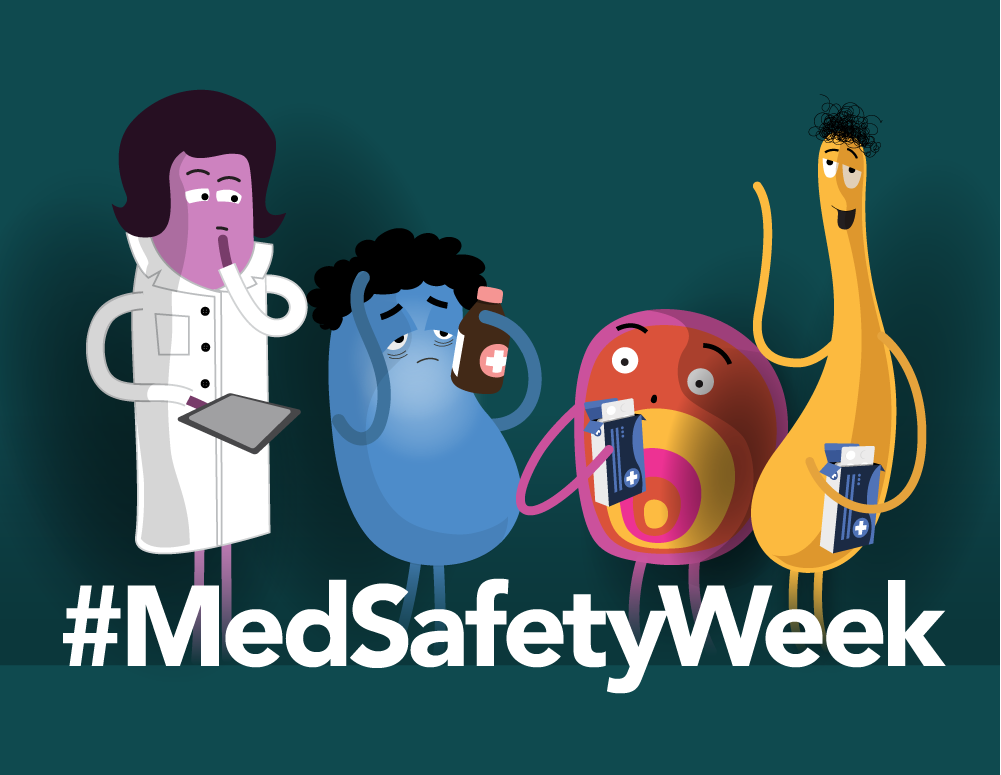
How can I avoid statin side effects?
Peer reviewed by Dr Krishna Vakharia, MRCGPLast updated by Victoria RawLast updated 24 Oct 2024
Meets Patient’s editorial guidelines
- DownloadDownload
- Share
- Language
- Discussion
All drugs can cause side effects for some people, and statins taken to lower cholesterol are no exception. Dr Sarah Jarvis outlines the common short term side effects, what your doctor can do to help, and the serious side effects to be aware of.
In this article:
Continue reading below
What are statins?
Statins are medicines prescribed by doctors to lower the bad cholesterol (LDL) in your blood. High LDL levels can increase your likelihood of heart disease by contributing to the hardening and narrowing of your arteries. Statins work by reducing the amount of LDL your liver produces.
You may be prescribed statins if you have a diagnosis of heart disease, a family history of heart disease, or if your medical records suggest you have a high chance of developing heart disease.
What are the side effects of statins?
In the short term, the most common statins side effects are related to your digestive system.
For example:
Bloating.
Diarrhoea or constipation.
Tummy pain.
Muscle pain and weakness
In the longer term, muscle, and sometimes joint aches, are probably the most troublesome side effect. They may affect up to 1 in 10 people taking statins, and they tend to be more common and more severe with higher doses.
Your doctor will be able to tell you if you are on a relatively high dose, depending on the type of statin you take.
If you have severe muscle aches and weakness you should see your doctor urgently or go to the nearest A&E. There is a very rare, but potentially very serious, side effect of statins called rhabdomyolysis - which can be life threatening.
This condition is when there is a breakdown of muscle tissue. When this happens substances like proteins, enzymes and electrolytes enter the bloodstream leading to problems such as kidney damage and heart rhythm abnormalities. One of the enzymes released - creatine kinase - is used as a marker in a blood test to check if you have this condition.
Continue reading below
How to relieve statin side effects
These side effects usually settle within a few weeks and can often be reduced by starting on a lower dose and increasing as the side effects settle.
For instance, with simvastatin, while the standard dose is 40 milligrams, I usually tell my patients to take half a tablet for a few weeks and then increase to a whole tablet once any side effects have gone.
The biggest benefit from taking a statin comes from the initial dose - you don't get a doubling of the reduction in your cholesterol by doubling the dose. In fact, every doubling of the dose of statin only reduces LDL cholesterol by a further 6%, compared to a reduction of up to 40% with the first 10 milligrams dose. If your side effects are having a significant impact on your life, something needs to be done.
However, if you have any significant degree of blockage of your coronary arteries, your chances of having a heart attack are high, and reducing your cholesterol with a statin will greatly reduce these odds.
There are several possible options, but discuss with your doctor before making any changes to your medication.
Reduce your dose - for example, if you are taking 40 milligrams of atorvastatin, I recommend you take this down to 20 milligrams. If that doesn't help, try reducing to 10 milligrams.
Change to a statin with a lower chance of these side effects - for example, if you are on atorvastatin you could discuss changing to rosuvastatin with your doctor. However, because rosuvastatin is many times more expensive than atorvastatin, some areas have limits on who can receive this statin.
If your cholesterol rises too much when the dose of statin is reduced, add in another medicine called ezetimibe - although this is not as effective as statins.
If your statins side effects include muscle symptoms, some people find that these improve if they also take a supplement called co-enzyme Q10 - although there is less evidence for this with joint problems.
Can you stop taking statins once you start?
It is worth stopping your statin for a couple of weeks to see if the symptoms disappear. It is possible that there is another cause for your symptoms - let your doctor know before you do this. If they continue, speak to your doctor about the options above.
#MedSafetyWeek

Serious side effects of statins
The likelihood of very serious side effects is low. It's important that you speak to your doctor if you experience any of the following:
Rhabdomyolysis (life-threatening muscle damage) - indicated by extreme muscle pain.
Liver damage - indicated by feeling unusually tired or weak, loss of appetite, upper tummy pain, dark-coloured pee, or yellowing of the skin or eyes.
Inflammation of the liver (hepatitis) - indicated by flu-like symptoms.
Inflammation of the pancreas (pancreatitis) - indicated by stomach pain.
Peripheral neuropathy - indicated by a loss of feeling or tingling in the hands and feet.
Statins and diabetes - there is a small but important risk that statins can raise blood sugar levels, causing type 2 diabetes.
Statins and memory loss - there is little evidence that statins cause memory loss, but some people report temporary memory loss or confusion that reverses when they stop taking statins.
Always read the patient information leaflet (PIL) or instructions that come with any medicine or medical device. This will provide important details about potential side effects, risks, and how to use to product correctly.
If you have any extreme pain in your muscles or in your tummy, or you have signs of liver damage - such as yellowing of your eyes or skin - go immediately to the emergency department of your local hospital or call 999 in UK and 911 in the US for an emergency ambulance.
Continue reading below
How to report side effects
If you get any side effects, talk to your doctor, pharmacist or nurse. This includes any possible side effects not listed on this page or the PIL that comes with the medicine. You can also report side effects yourself - or on behalf of someone you’re caring for - using the Medicines and Healthcare products Regulatory Agency (MHRA) Yellow Card scheme.
Every report counts, and helps the MHRA monitor the safety of medicines and prevent future harm to others. You can also download the MHRA Yellow Card app in the Google Play or Apple App Store.
By reporting side effects you can help provide more information on the safety of this medicine.
Patient picks for High cholesterol

Heart health and blood vessels
Eating out with high cholesterol
If you have high cholesterol, going out for a meal can feel like a minefield. Which type of cuisine do you go for? What about hidden fats? Should you have a pudding? Luckily there is so much choice now available – and many restaurants now offer heart-healthy options – that you can eat out without missing out.
by Danny Chadburn

Heart health and blood vessels
Why you need to check your cholesterol
We hear a lot about the dangers of high cholesterol, but unless you have a blood test, you have no idea you've got it - unless you have a heart attack or stroke, by which time it's too late. Even if you do have a blood test, the results can be confusing - so how do you know what your blood tests mean and what you should do about them?
by Dr Sarah Jarvis MBE, FRCGP
Continue reading below
Article history
The information on this page is peer reviewed by qualified clinicians.
Next review due: 24 Oct 2027
24 Oct 2024 | Latest version
18 Oct 2018 | Originally published
Authored by:
Dr Sarah Jarvis MBE, FRCGP

Ask, share, connect.
Browse discussions, ask questions, and share experiences across hundreds of health topics.

Feeling unwell?
Assess your symptoms online for free
Sign up to the Patient newsletter
Your weekly dose of clear, trustworthy health advice - written to help you feel informed, confident and in control.
By subscribing you accept our Privacy Policy. You can unsubscribe at any time. We never sell your data.